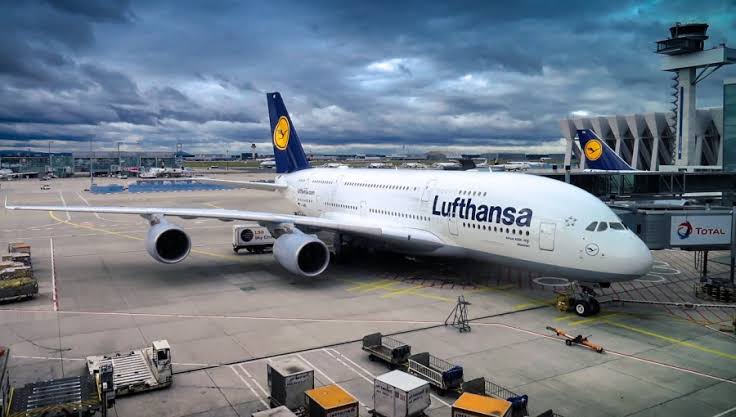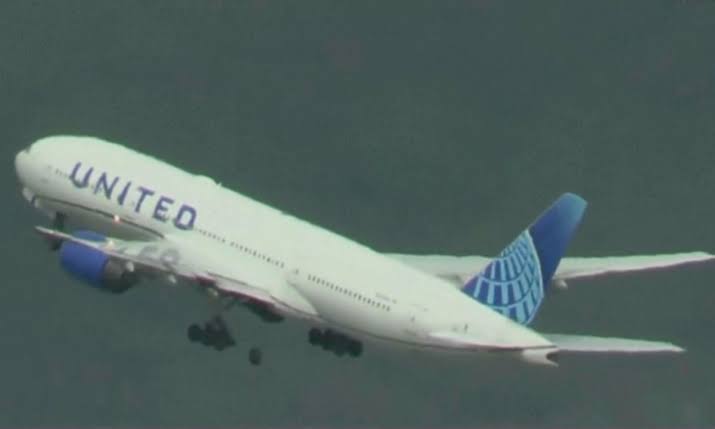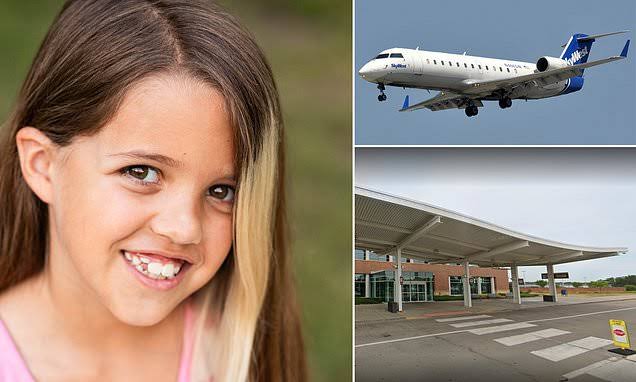Lufthansa Airlines Makes A Devastating Announcement
Lufthansa Airlines Makes a Devastating Announcement
In a turn of events that has sent shockwaves through the global aviation industry, Lufthansa Airlines, Germany’s largest and most iconic carrier, has made a devastating announcement that could significantly impact the future of European air travel. On Wednesday, during a press conference held at the company’s headquarters in Frankfurt, CEO Carsten Spohr revealed a comprehensive restructuring plan in response to mounting financial losses, operational challenges, and changing industry dynamics—an announcement that involves mass layoffs, route cancellations, and the retirement of key aircraft models.
A Tumultuous Time for the Airline Industry
Lufthansa’s announcement comes at a time when the airline industry is still grappling with the aftershocks of the COVID-19 pandemic, increased fuel prices, and a global labor shortage. While many airlines have rebounded thanks to a surge in post-pandemic travel, Lufthansa has faced unique pressures stemming from internal labor disputes, high operating costs, and heightened competition from low-cost carriers in Europe and the Middle East.
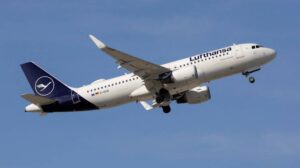
Though the airline posted modest profits in 2023, executives have warned for months that structural weaknesses remained. Rising costs, unstable geopolitical climates—particularly in Eastern Europe and the Middle East—and regulatory constraints within the European Union have all contributed to the dire financial forecast that led to this week’s sobering announcement.
The Devastating Details: Job Cuts and Route Reductions
Perhaps the most heart-wrenching element of Lufthansa’s announcement is its plan to cut nearly 20,000 jobs across its global workforce. This figure includes a mix of ground staff, cabin crew, and administrative employees. Though Lufthansa emphasized that it would offer early retirement packages and support for transitioning affected employees, labor unions have already responded with fury.
“We are devastated by this betrayal,” said Anja Dörfler, spokesperson for Ver.di, Germany’s second-largest trade union. “These workers carried Lufthansa through the pandemic with courage and sacrifice. To now be cast aside in the name of efficiency is nothing short of cruel.”
In addition to job cuts, Lufthansa will eliminate over 80 international and domestic routes, including long-haul connections to secondary U.S. cities and flights to smaller European hubs. The airline cited “persistent underperformance” and “insufficient passenger demand” as key reasons for these cuts. Popular routes from Frankfurt to cities like Portland, Osaka, and Nairobi will be suspended indefinitely, sparking frustration among frequent travelers and regional tourism boards.
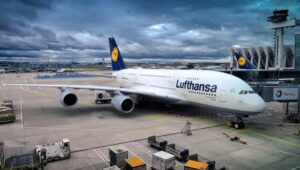
Fleet Downsizing and Aircraft Retirement
Further compounding the airline’s woes is the decision to retire a significant portion of its wide-body aircraft fleet. Most notably, Lufthansa will phase out its remaining Airbus A380s by the end of 2025—an aircraft once hailed as the future of long-haul air travel. Additionally, older Boeing 747-400s and Airbus A340s will be retired ahead of schedule.
“The economics of operating four-engine aircraft no longer make sense in today’s market,” said Spohr. “We must modernize to survive.”
While Lufthansa plans to focus on newer, more fuel-efficient models like the Airbus A350 and Boeing 787 Dreamliner, the sudden removal of legacy aircraft has sparked concern over capacity shortages, particularly during the high-demand summer travel season.
Shareholders React Swiftly
The markets responded swiftly—and harshly—to the announcement. Lufthansa’s shares plummeted nearly 18% within hours of the news, wiping out billions of euros in market capitalization. Financial analysts, while not entirely surprised, had not anticipated the scale of the restructuring.
“This is a dramatic pivot that signals deep distress,” said Markus Lang, an aviation industry analyst at Deutsche Bank. “While some of these measures were expected, the speed and severity with which Lufthansa is implementing them reflect an urgent need to stop the financial bleeding.”
A Strategic Retreat or Tactical Pivot?
While the announcement is undoubtedly devastating, Lufthansa leadership insists that the restructuring is a necessary pivot that will allow the airline to focus on core markets and long-term profitability.
“We’re not retreating—we’re repositioning,” Spohr said. “Our goal is to emerge leaner, smarter, and more competitive in an industry that has changed irreversibly.”
Lufthansa plans to focus on strengthening its transatlantic partnerships, particularly within the Star Alliance network, and investing more heavily in digital innovation, customer service enhancements, and sustainable aviation technologies. The airline has also hinted at a future collaboration with tech giants to explore AI-driven operational efficiency and personalized travel experiences.
The Human Toll: Stories from the Frontlines
Despite the corporate optimism, the human toll of the announcement is already being felt. At Frankfurt Airport, scenes of confusion and quiet despair played out as employees learned their fate. Jan Müller, a Lufthansa ramp agent for over 22 years, described the atmosphere as “surreal.”
“They handed us letters and said they’d do their best to support us, but it’s hard not to feel discarded,” Müller said.
In Munich, a group of flight attendants protested outside the Lufthansa headquarters, holding signs that read, “Wir fliegen nicht in die Zukunft ohne uns” (“We’re not flying into the future without us”).
Repercussions for the Travel Ecosystem
Lufthansa’s decision doesn’t just affect the airline itself—it will ripple through the broader travel and tourism ecosystem. Airport authorities in affected cities have voiced concerns about decreased traffic and revenue. Travel agencies and tour operators fear reduced connectivity could lead to fewer bookings, particularly in regions reliant on European tourism.
“The impact of Lufthansa downsizing its presence in Africa and parts of Asia will be felt deeply,” said Naomi Bwalya, a tourism board representative in Lusaka, Zambia. “These routes were vital for both business and tourism. We may see a drop in foreign visitors as a result.”
Government Response and Political Pressure
The German government, which owns a minority stake in Lufthansa following its €9 billion bailout in 2020, issued a cautious statement acknowledging the company’s need to adapt but urging it to consider “socially responsible” measures.
“We recognize the challenges facing the aviation industry,” said Federal Minister for Economic Affairs Robert Habeck. “But we call on Lufthansa to prioritize its workforce and seek alternatives to mass layoffs.”
Opposition parties in the Bundestag have already begun calling for hearings to investigate the airline’s strategic decisions and the effectiveness of government support during the pandemic.
Looking Ahead: Uncertain Skies
Lufthansa’s future now hangs in a delicate balance. On one hand, the restructuring may position the airline for a more sustainable long-term future. On the other, the reputational damage, loss of customer confidence, and internal demoralization could hamper recovery efforts.
Passengers have already begun expressing concerns online about increased ticket prices, reduced flight options, and possible disruptions during the transition. Frequent flyers worry about their loyalty programs, status benefits, and the quality of service they’ve come to expect from Germany’s flagship airline.
“This feels like the end of an era,” wrote one longtime customer on Lufthansa’s social media page. “Lufthansa used to stand for excellence. Now it feels like just another airline trying to survive.”
Industry-Wide Implications
Lufthansa’s announcement could serve as a bellwether for the European aviation industry. As other legacy carriers like Air France-KLM and British Airways navigate similar headwinds, analysts predict a wave of consolidation, cost-cutting, and strategic realignment across the board.
“This could be the start of a new chapter in global aviation,” said Lang of Deutsche Bank. “The industry may be moving away from full-service international carriers toward leaner, hybrid models that focus on core routes, partnerships, and digital innovation.”
A Legacy in Question
For decades, Lufthansa has been a symbol of precision, reliability, and German engineering excellence. Founded in 1953, the airline grew into one of the largest and most respected in the world, operating a vast network across six continents. Its loyalty program, Miles & More, and its role in the Star Alliance made it a staple for international business travelers and tourists alike.
Today, that legacy hangs in the balance.
As Lufthansa enters this period of painful transformation, its next steps will determine whether it can retain its place among the world’s top carriers—or fade into a cautionary tale of how even the most storied airlines can struggle to navigate turbulent skies.
